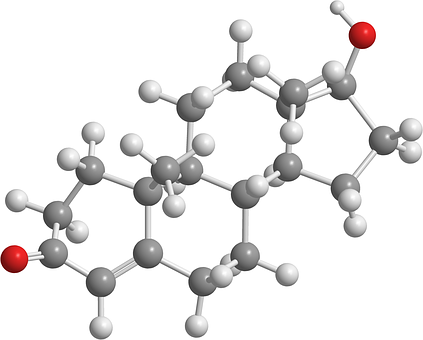Sleep deprivation, even for a brief period, can have a devastating impact on the testosterone levels of men.
According to recent research, a week of sleep deprivation can cause testosterone levels to plummet by around 15% in a group of healthy young men.
The same study also indicated that low testosterone levels can harm the health of men in a variety of ways, which include libido.
For instance, if a man is suffering from extremely low levels of testosterone, it is usually related to not just decreased libido, but as well as low energy, fatigue, and impaired concentration or inability to focus.
Testosterone is also essential for strength development and muscle mass and has a crucial role to play in healthy bones and their proper density. Upon reaching the age of 40 years old and above, the male human body’s production of testosterone will start to drop gradually by at least 1% to 2% every year. After that, the changes in the body and appearance will slowly manifest themselves. To others, the changes are more drastic and life-altering. This is the reason why they seek assistance and advice from leading TRT Australian doctors.
What is the Relationship Between Sleep and Low Testosterone?
It does seem that normal production of testosterone can happen only under the umbrella of REM (rapid eye movement) sleep, the kind and quality of sleep that is most restful and undisturbed.
Sleep deprivation can also set the stage for the stress hormone cortisone to spike over time. An excessive concentration of cortisone in the male human system can also set the stage for testosterone levels to nosedive. This is based upon the experience and observations of a TRT clinic.
The majority of the testosterone hormone is used by the body during the day and is replenished at night. In older men, it was found out that a gradual decrease in the number of sleep hours will actually lay the groundwork for a significant reduction of T-levels. Men with this condition (low-T) have been found to have more difficulty getting a good night’s sleep, hence their low-T levels.
Sleep Impacts Your Testosterone Level
Researchers compared testosterone levels in a group of ten healthy young men following a week of having them enjoy their normal sleep routines and a week of sleep deprivation in the study. The study’s findings were published in the Journal of the American Medical Association, or JAMA.
The participants in the said research were allowed to initially enjoy their sleep for a full 8 hours per night in their homes for the first week. Then, after that, they were made to spend 3 nights sleeping for 10 straight hours and 8 nights sleeping for 5 hours only in a facility or sleep laboratory.
The findings showed that testosterone levels are significantly reduced by around 10% – 15% after a week of deprived sleep hours as opposed to their rested states. This downward trend in testosterone levels was also found to be connected with the dwindling of the vigour of the participants.
Researchers also discovered that approximately 15% of adult workers in the global population today sleep less than 5 hours a night, indicating that prolonged sleep deprivation is more likely to have a detrimental effect on men’s overall wellbeing and testosterone levels.
If you suspect that you may be a good candidate for low testosterone and that this condition is already affecting the quality of your life in an unfavourable way, we encourage you to reach out to a reputable testosterone clinic near you for a consultation.
TRT in Australia has gone a long way, as far as providing testosterone replacement therapy is concerned. If you’re having trouble getting a good night’s sleep, that’s another reason you should see a doctor right away.




 who specializes in male reproduction. Following diagnosis, you and your doctor can determine the best course of action for your low testosterone depending on your desired outcomes, which may include sexual or reproductive function.
who specializes in male reproduction. Following diagnosis, you and your doctor can determine the best course of action for your low testosterone depending on your desired outcomes, which may include sexual or reproductive function.
